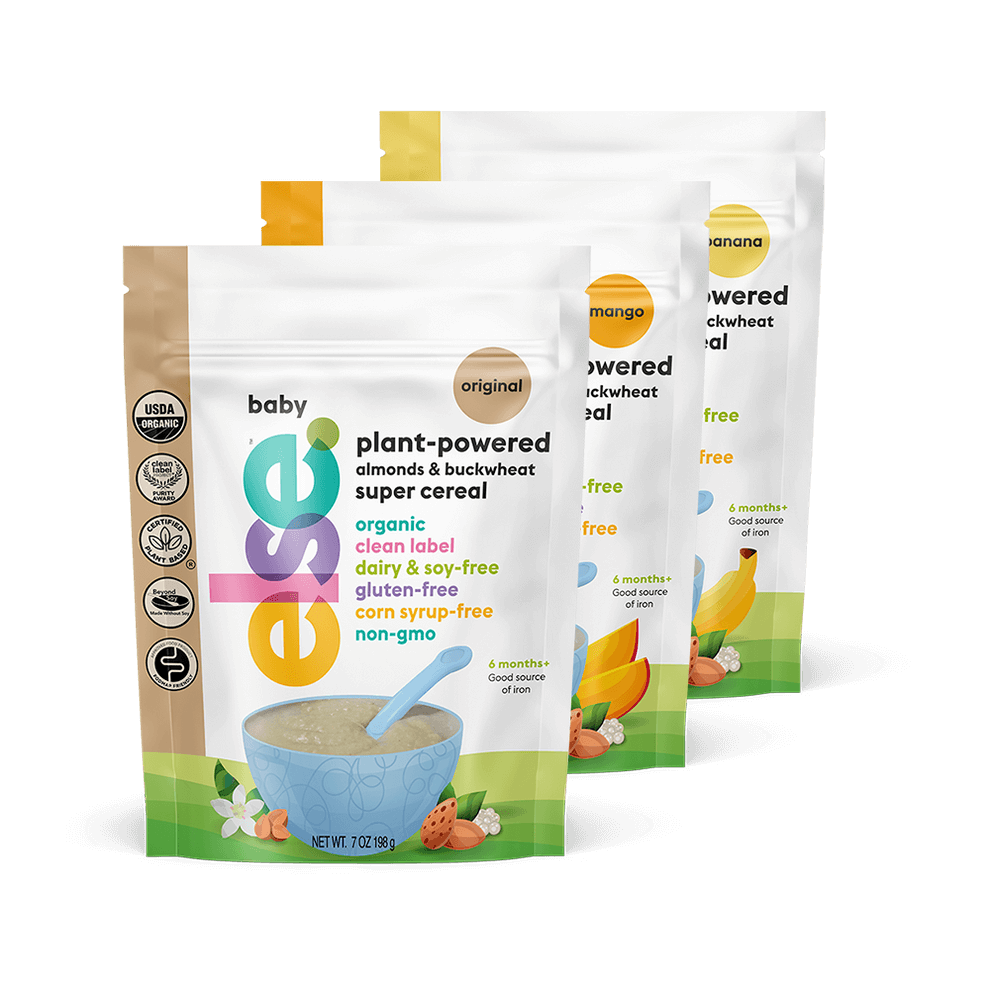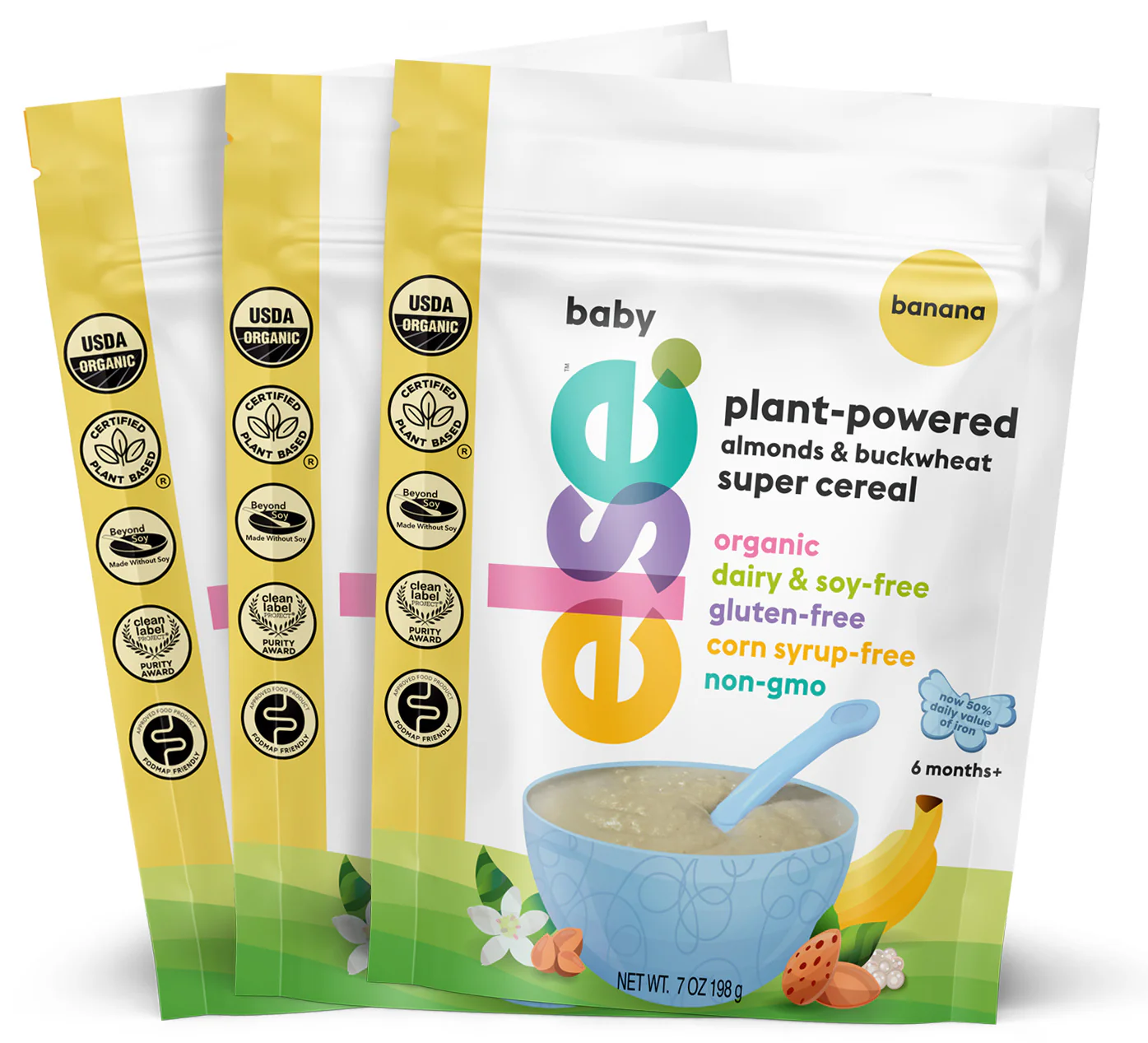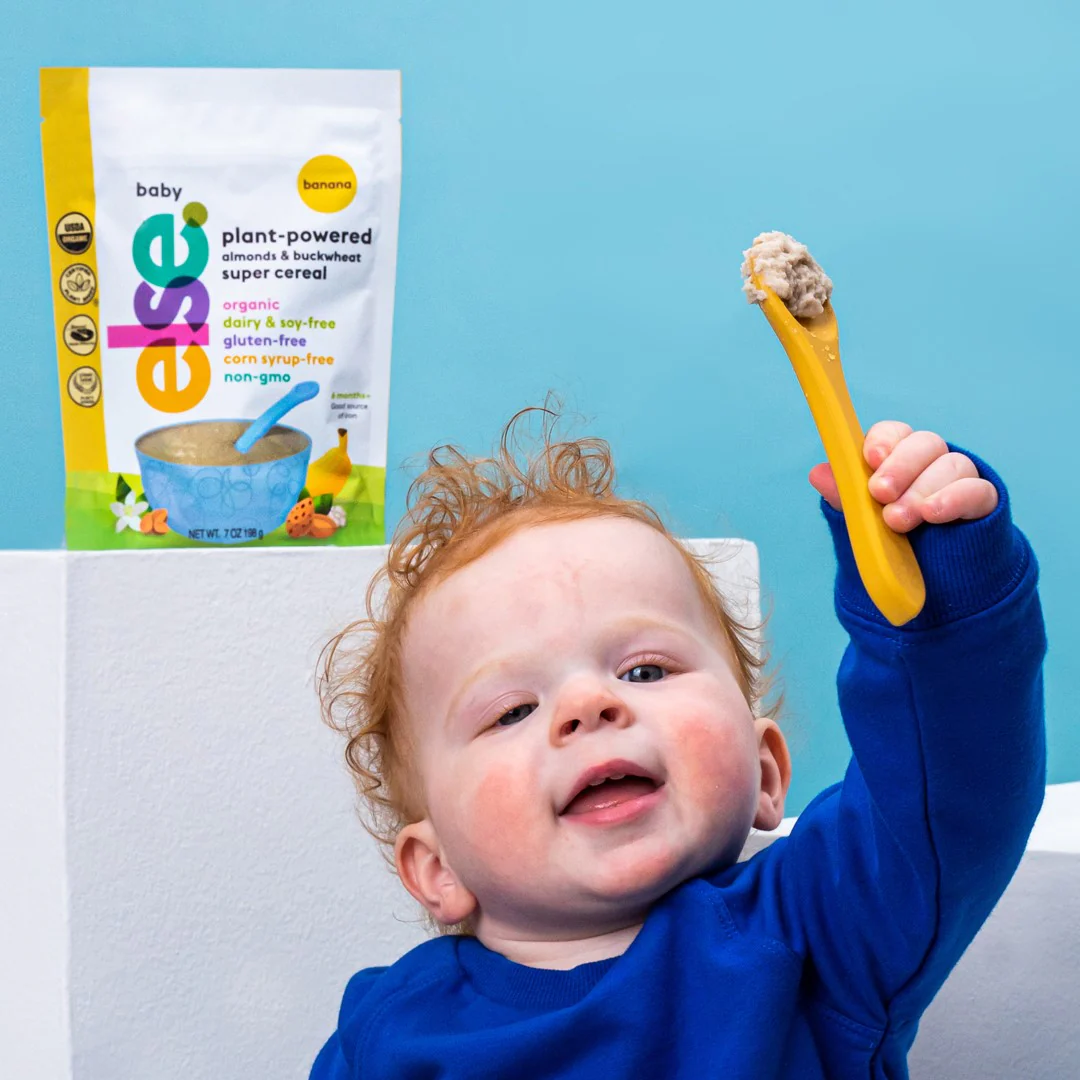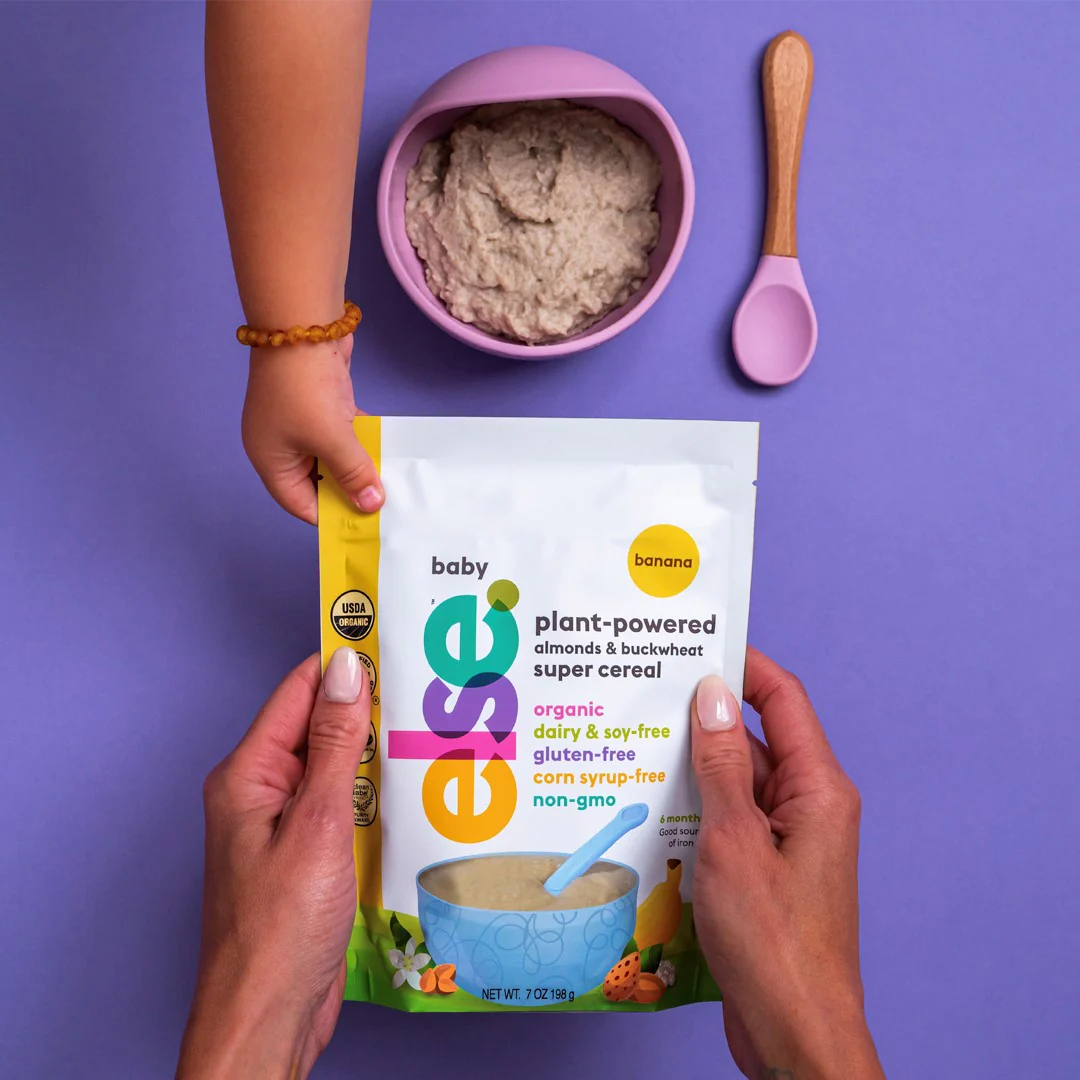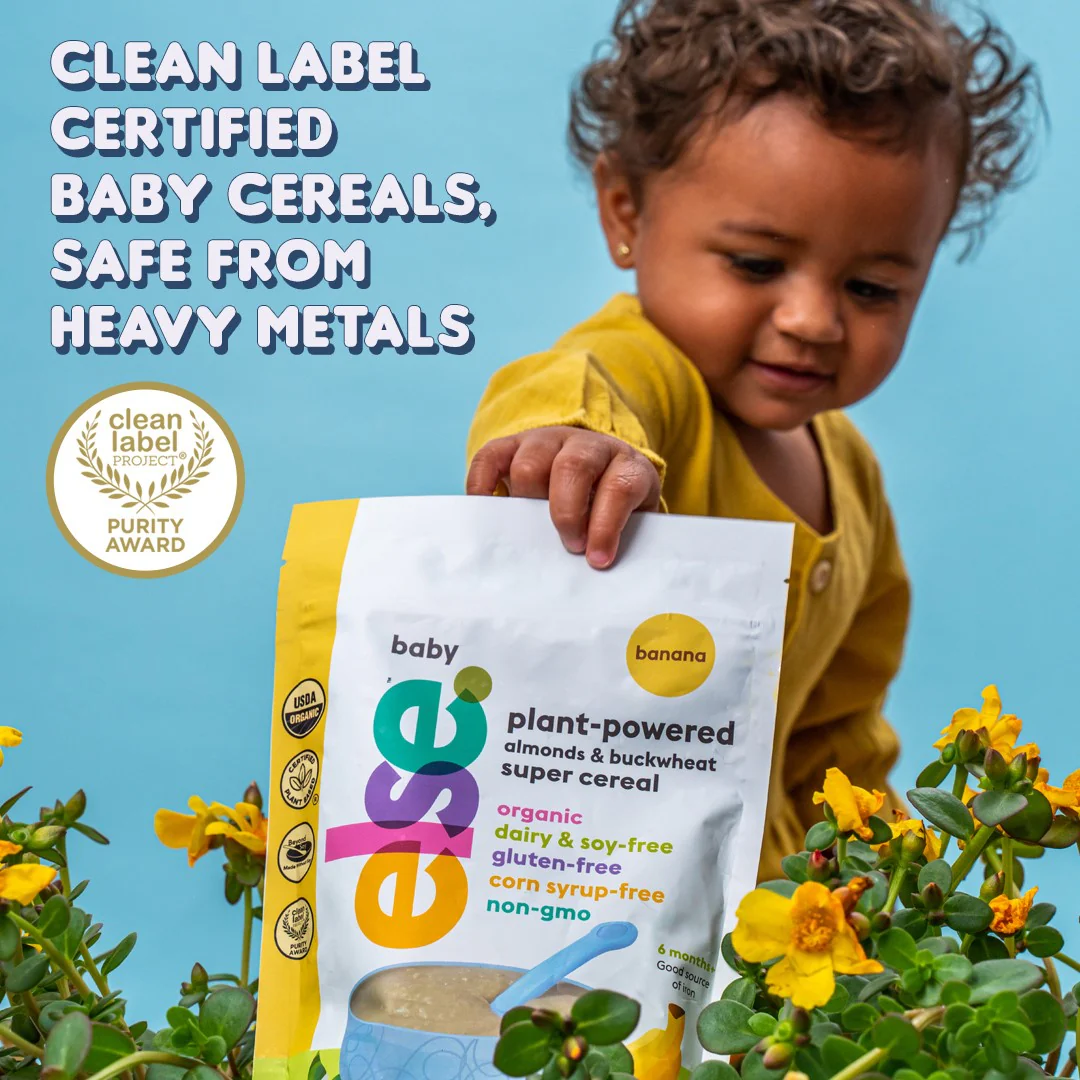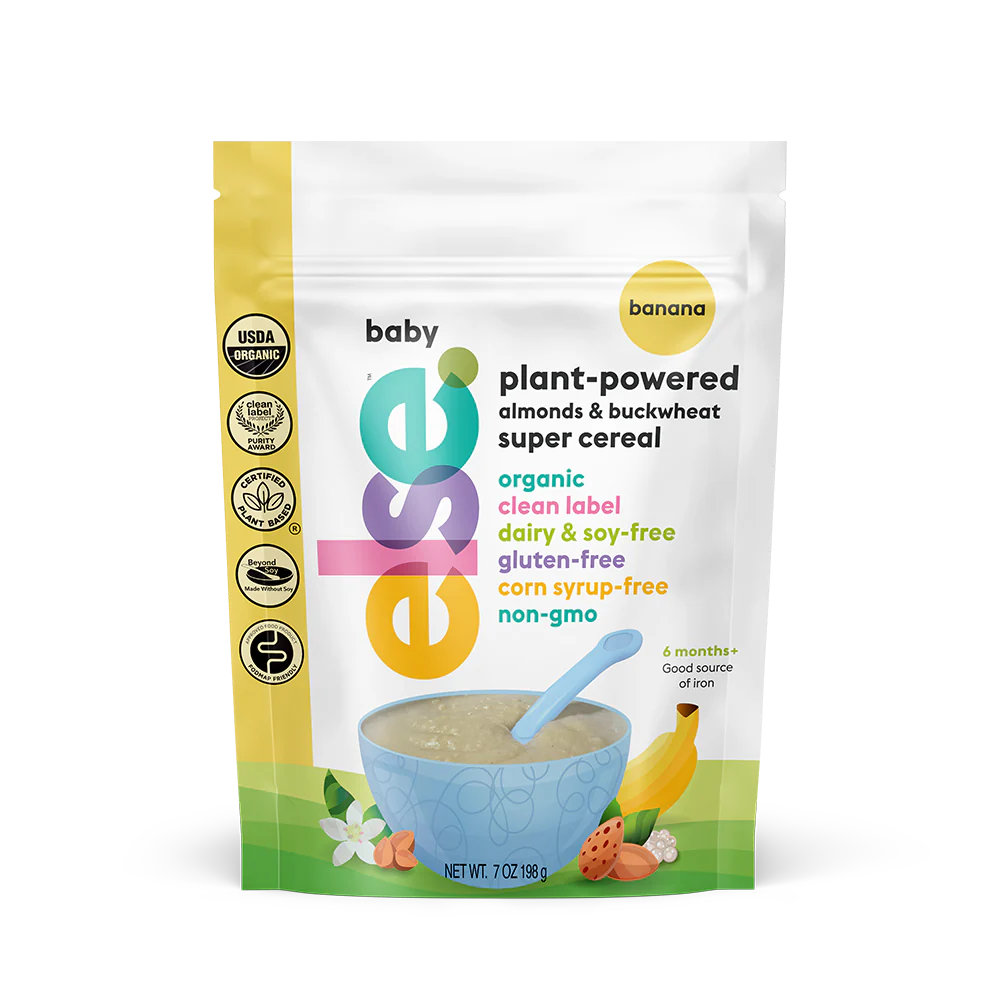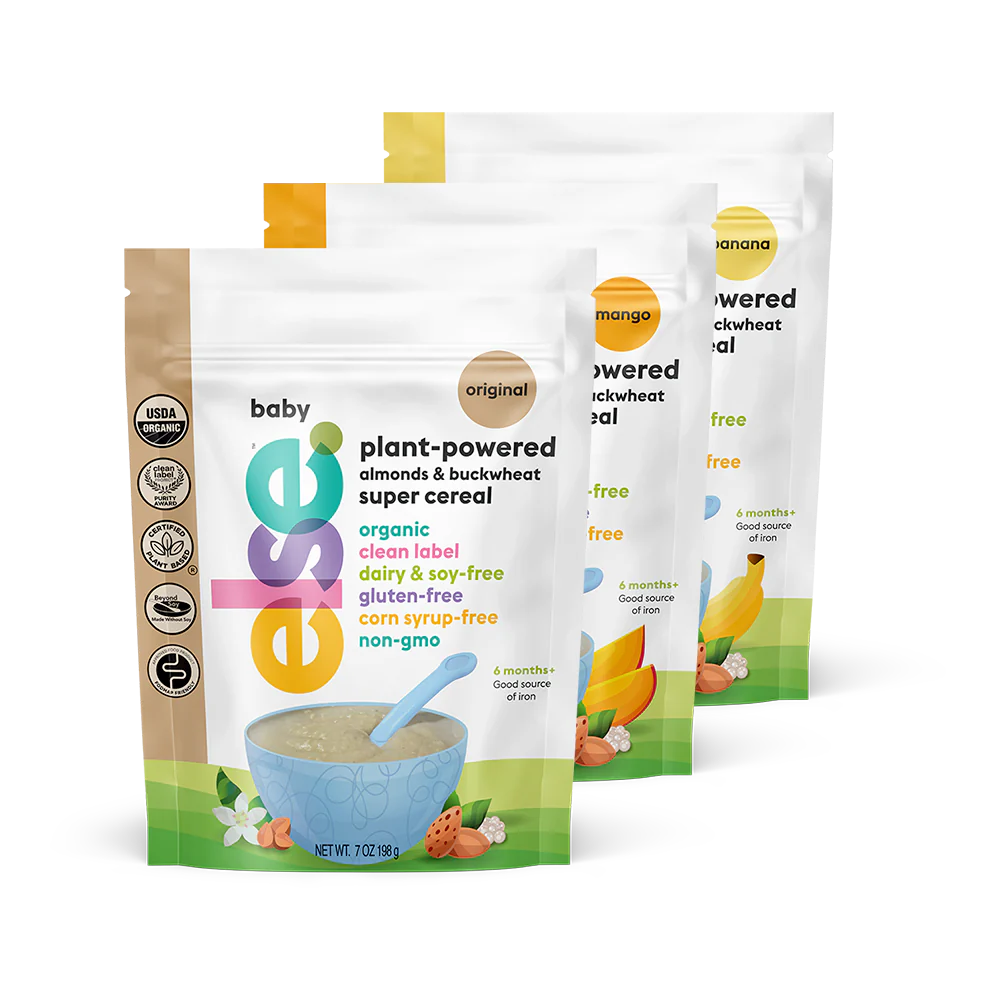Understanding Colic: Selecting the Best Infant Formula
Learn about colic symptoms, causes, and tips for choosing the right formula to soothe your little one's discomfort.
Updated May 17, 2024

Crying is an essential communication tool for newborn babies. It can signal a variety of needs, such as hunger, fatigue, discomfort, or the need for attention. While it's normal for infants to have peak crying periods around five to six weeks, tapering down by three to four months, some babies may cry excessively for longer periods.
This condition, known as colic, typically follows the rule of 3: crying for at least 3 hours a day, at least 3 days a week, for at least 3 consecutive weeks. Colic is estimated to affect up to one in five infants, accounting for between 5 and 19% of all infants.
If your baby is experiencing colic, you might be considering different ways to soothe your baby and relieve symptoms of colic. One such method could involve trying a different formula. Whether you're considering European formula, organic baby formula, or a specialized colic formula, it's best to consult with a healthcare professional before making any changes to your baby's diet.
Remember, what works best for your baby may not work for another. Every baby is unique, and while one formula may soothe one baby, another may require a different type of formula. Sometimes, it's a matter of trial and error to find the right formula milk for colic.
What Causes Colic in Baby Formula-Fed Babies?
Despite being relatively common, the cause of infant colic is still uncertain. It is believed that the presence of allergens or lactose in infant baby formula may contribute to colic in babies. Other research suggests that components of the maternal diet that get into the breast milk are another possible contributing factor to infant colic.
Cow's Milk Allergy
Cow's milk allergy is one of the most common allergies among infants and young children, affecting about 0.5 to 3% of all one-year-old children in developed countries. In the United States, over half of all children under five years with a food allergy have a cow’s milk protein allergy.
The prevalence of this food allergy may limit the available formula choices for an infant. Many standard infant formulas use cow’s milk protein as the main protein source (casein or whey). If your baby has a milk allergy and is being fed milk products, this could cause colic. Even human milk can cause colic and reflux if the parent is consuming dairy.
For infants who are found to have a cow’s milk protein allergy, infant baby formulas that are soy-based are usually offered as baby formula alternatives. However, there is a chance that the infant may continue to have formula tolerance issues.
Soy protein allergies are not as common as cow’s milk allergies but still affect between 0.4 and 1.2% of children. Some children may have allergies to both cow’s milk and soy protein—research suggests that up to 10-14% of individuals with cow’s milk protein allergy also have an allergy to soy protein.
Transient Lactose Intolerance
Even in the absence of a cow’s milk allergy, the lactose or milk sugar present in infant baby formula may be a source of discomfort and colic symptoms.
Some infants experience something called “transient lactose intolerance,” where they are unable to tolerate any type of lactase enzyme for a short period of time due to immaturity in the gastrointestinal tract. This means that for some infants, milk-based foods are making the colic worse.
In these cases, the best baby formulas to purchase are organic baby formulas that do not include milk, such as goat milk formula or soy. It is important to see what your baby may tolerate and what they do not tolerate.
There are many formula options that could soothe your baby; it just takes time to find the formula on the market that is best for your baby. There is no one best formula for colic, but by trying different formulas, you could find one that helps your child.
Some European formulas claim to be colic and anti-reflux formulas, but it is possible that your child would still have a reaction due to the ingredients in them. There are other formulas that claim to be proven to reduce colic due to the use of specialized colic formulas, but there is essentially no formula that is clinically proven to reduce colic.
Colic Symptoms your Baby may Experience
Colic in babies is a common concern for parents and caregivers. It's characterized by frequent, prolonged, and intense crying or fussiness in an otherwise healthy infant. Colic usually starts during the first few weeks of life and is defined as crying for more than three hours a day.
Some of the symptoms of babies that suffer from colic, such as pulling legs up to pass gas, tightening of stomach muscles, and stomach bloating, suggest that one of the possible causes of colic is diet.
Some infants may experience discomfort due to lactose or milk sugar present in baby formula. In such cases, organic baby formulas that do not include cow's milk, like goat milk formula or soy-based infant formula, may be a better option.
It's important to understand that no single formula is clinically proven to reduce colic. However, trying different formulas can help find one that your baby tolerates well and relieves symptoms of colic. Some formulas are even specially formulated with organic skim milk to be gentle on your baby's stomach.
While it is possible to find suitable formulas online or in stores, it's recommended to consult with a healthcare professional when choosing a formula for a colicky baby. They can provide guidance based on your baby's specific needs and health conditions.
How to Prevent Colic in Formula-Fed Babies
For parents and guardians looking to alleviate colic symptoms in formula-fed babies, there are several strategies that can be employed.
Feed Your Baby Frequently
Consider offering your baby more frequent feeds throughout the day but with smaller volumes. This approach can help manage the digestive process and reduce discomfort.
Find the Right Feeding Position
Whether you're using breast milk or formula, the feeding position is crucial. Have the baby sit upright during feedings and use the best baby bottles with the appropriate nipple size to minimize the amount of air swallowed, which is a common contributor to gas and colic.
Burp Your Baby
Burping the baby after each feed can also help reduce trapped gas in the stomach, which often leads to reflux. This tactic can be particularly beneficial for babies with colic.
Create a Calm Environment
Creating a serene environment can also play a significant role in soothing a colicky baby. Try dimming the lights, reducing loud noises, avoiding strong smells, and providing gentle rocking during crying spells. Warm baths, massages, or warm blankets can also offer comfort and relief.
Seek Professional Advice
Keep in mind that colic usually begins when a baby is a few weeks old and may resolve over time. If you suspect your baby may have colic, seek advice from a healthcare professional before making any significant changes to their diet or routine. They can provide guidance on using this formula or other products and techniques to help soothe your baby.
Stay Informed
It's essential to stay informed about any recall for this formula due to safety concerns. Regularly check updates from the formula manufacturer and regulatory authorities to ensure the formula you're using remains safe for your baby.
Best Dairy-Free Baby Formula for Colic
While more research on the causes and treatment of colic needs to be done, some research suggests that hydrolyzed formulas and soy formulas may decrease colic symptoms among babies.
Soy-Based Infant Formulas
Soy-based formulas are a common baby formula alternative to cow’s milk-based formulas and are lactose-free. However, soy is not always an option for infants.
Infants with allergies to cow’s milk, and soy, or those with intolerance to standard formulas are fed with a formula containing a hypoallergenic formula.
Hypoallergenic Baby Formula
Hypoallergenic infant formulas are made in three types:
- Partially hydrolyzed
- Extensively hydrolyzed
- Elemental formulas
A hydrolyzed formula simply means a formula with proteins that are broken down (usually cow’s milk proteins)—the more hydrolyzed a formula has, the smaller the protein sizes are, and the greater ease of digestibility. In the case of elemental formulas, individual amino acids or protein building blocks are brought together in proper amounts to meet protein requirements in a formula.
Furthermore, this type of formula also contains a prebiotic to help infants develop different types of probiotics, like Lactobacillus reuteri, for a healthier gastrointestinal tract.
Clean, Plant-Based Baby Nutrition
For parents looking for formulas that have a clean label and are safe for infants with cow’s milk and soy protein allergies, or other intolerances, the choices available have been limited until now.
Else Nutrition’s formula brand is designed to provide an alternative, organic formula to meet the needs of parents and their infants, as well as for those who require baby formula alternatives to cow’s milk and soy protein formulas. Else could be seen as a colic formula to some since its ingredients are all clean and alternatives to typical allergies your little one could be suffering from.
We surveyed parents to rank the top criteria in choosing a formula for their infant. A guarantee of all nutritional requirements for proper development, good and safe ingredients, and a formula that is easy to digest and tolerate were among their top reasons to choose an infant baby formula.
Else Nutrition’s formulas are nutritionally adequate to support growth and provide a complete amino acid and fatty acid profile, as well as all other nutrients needed for development.
- Our formulas have a Clean Label
- Are made with no added external macronutrients
- Are hormone, antibiotic, and GMO-free
- Have a little ecological footprint
The main protein sources of our plant-based formula come from almonds and buckwheat, two gluten-free protein sources that are perfect for vegetarian and vegan households.
If your infant is experiencing colic, switching from a standard cow’s milk formula may improve your infant’s symptoms. Trying an alternative healthy, plant-based formula will help your infant achieve healthy growth and development with improved formula tolerance and less crying.
9 Tips for Choosing a Formula Milk for Colic Babies
1. Consult a Healthcare Professional
Before making any changes to your baby's diet, always consult with a pediatrician or a healthcare professional. They can guide you on the best course of action based on your baby's symptoms and health history. They can also recommend one of the best baby formula for babies with colic.
2. Consider Hypoallergenic Formulas
Some babies with colic may have an allergy or intolerance to cow's milk proteins. Hypoallergenic formulas are designed to be easier to digest and may help reduce colic symptoms.
3. Try Different Formulas
If one formula doesn't seem to be helping, don't be afraid to try another. Every baby is different, and what works for one might not work for another.
4. Read Labels Carefully
Look for formulas that are free from additives, artificial colors, flavors, and sweeteners. Some babies may react to these ingredients, which can exacerbate colic symptoms.
5. Opt for Organic
Organic formula is a great option as well since it provides all the necessary nutrients your baby needs. This type of formula is also made without pesticides, synthetic fertilizers, and genetically modified organisms (GMOs). If you're concerned about these factors, organic could be the way to go.
6. Check Online Reviews and Ratings
Other parents' experiences can provide valuable insights. Check online reviews and ratings for different formulas to see what has worked for other babies with colic.
7. Ease into the Transition
When introducing a new formula, do it gradually. Mix the new formula with the old one in increasing amounts over several days to help your baby adjust to the change.
8. Monitor Your Baby's Reaction
Keep an eye on your baby's reaction to the new formula. If colic symptoms persist or worsen, or if new symptoms appear, contact your healthcare provider immediately.
9. Stay Updated on Product Recalls
Regularly check updates from the formula manufacturer and regulatory authorities to ensure the formula you're using remains safe for your baby. You can check it online and in the formula of your baby's milk.
» Discover the key signs that formula isn't suitable for your baby
The Right Formula for Soothing Colicky Infants
Changing the formula can help reduce colic due to a cow's milk or soy allergy. A gentle dairy- and soy-free formula might just be what your child needs to help them overcome their colic. Even though colic does not have a definitive reason for occurring, infants experiencing colic usually get better when their formula is free of allergens.
The content and advice provided in this article are for informational purposes only and are not a substitute for medical diagnosis, treatment, or advice for specific medical conditions. Always consult a pediatrician to understand the individual needs of your child.




